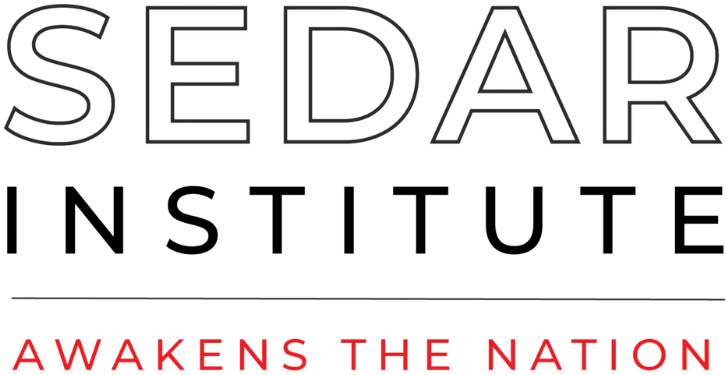On 5 September 2024, SEDAR Institute conducted a closed-door online panel discussion session on “Reforming Parliament: Securing the Neutrality of the Dewan Rakyat Speaker” with Dr. Lau Zhe Wei from International Islamic University Malaysia, and Mr. Thomas Fann as panellists for the session. The panel discussion was moderated by Ryan from SEDAR Institute.
The Dewan Rakyat Speaker plays a crucial role in Malaysia’s parliamentary system as the presiding officer of the lower house of Parliament. Their ability to ensure fairness and impartiality in parliamentary proceedings necessitates their neutrality as the key ingredient in fostering public trust in the parliamentary system and for enabling a healthy democratic process in Malaysia.

Keynote Address by SEDAR Institute’s Advisor, YB Senator Datuk Dr. Dominic Lau Hoe Chai
The Panel Discussion
The online panel discussion touched on the potential reform ideas to reinforce the impartiality of the Yang di-Pertua Dewan Rakyat (Speaker). Both panellists shared their views and suggestions on how the appointment of the Speaker and reforms to parliamentary procedures can reinforce the impartiality of the Speaker and the legislative itself. The panellists also discussed their expectations for the reintroduction of the Parliamentary Services Act next month.
Dr. Lau Zhe Wei in his presentation of his think piece with “DASAR: Policymaking in Malaysia Vol. 1”, mentioned the perception of the public as key in fueling public confidence in the Yang di-Pertua Dewan Rakyat and Parliament as a whole. He touched on the fact that some former Speakers maintain ties with their previous political parties with the door to active politics remaining open to them. The political conflict of interest makes it difficult to distinguish whether the actions of the Speaker are truly unbiased (often subject to debate due to political partisanship).
To reinforce the Speaker’s impartiality, Dr. Lau suggested three recommendations:
- The Speaker to have an easy win in his constituency
- Lifelong appointment of the Speaker
- Restricting the Speaker and his family members from participating in active politics during and after his term
Dr. Lau’s ideas stem from his observations to the Parliament of the United Kingdom and pointed out the ‘gentleman politics’ prevalent in the UK, which informally designates the Speaker as a different political track from the Executive (i.e. Prime Ministers, Ministers) and as a pre-retirement post. Dr. Lau also mentioned the difficulties of implementing gentleman politics in Malaysia which bears potential to enhance the impartiality of the Speaker.
In response to Dr. Lau’s presentation, Mr. Thomas Fann agreed with his sentiment on gentleman politics but raised reservations to the implications of a lifelong appointed Speaker and the Constitutional risks of barring the Speaker (and their family members) from political participation. In favour of the status-quo, Mr. Thomas proposed three recommendations to enhance the independence and impartiality of the Speaker;
- Reform the election process of the Speaker
- Remove control of the parliamentary calendar by the Prime Minister
- Return agenda-setting of the Dewan from the Executive to the Legislative

Both panellists agreed the quickest way to enhance public confidence in the role of the Speaker is to reform the Standing Orders to favour the autonomy of the Speaker to set the agenda of the House and to allocate dedicated sessions for Private Member’s Bills (PMBs) in Parliament so that Government Bills do not dominate the Order Papers.
Further discussions revolved around the importance of parliamentary autonomy to receive its own budget straight from the Treasury (therefore bypassing the Executive), hire their own staff (instead of relying on civil servants who serve the Executive), and manage their own facilities. An autonomous and neutral Parliament has the capacity to reduce nepotism and corruption by ensuring the best staffers are hired based on merit.
Conclusion
As a conclusion, both panellists maintained faith that Parliament can be reformed given there is sufficient political will. Mr. Thomas Fann noted positive changes throughout the years, such as the anti-hopping law and Undi18, which reinforces his belief in the possibility of reformation progress. He emphasised that think tanks and NGOs must constantly advocate for such changes to ensure that politicians feel the pressure to reform the system.
The session concluded with closing remarks from Srideran Tamil Mogan, the Chief Executive Officer of SEDAR Institute.






